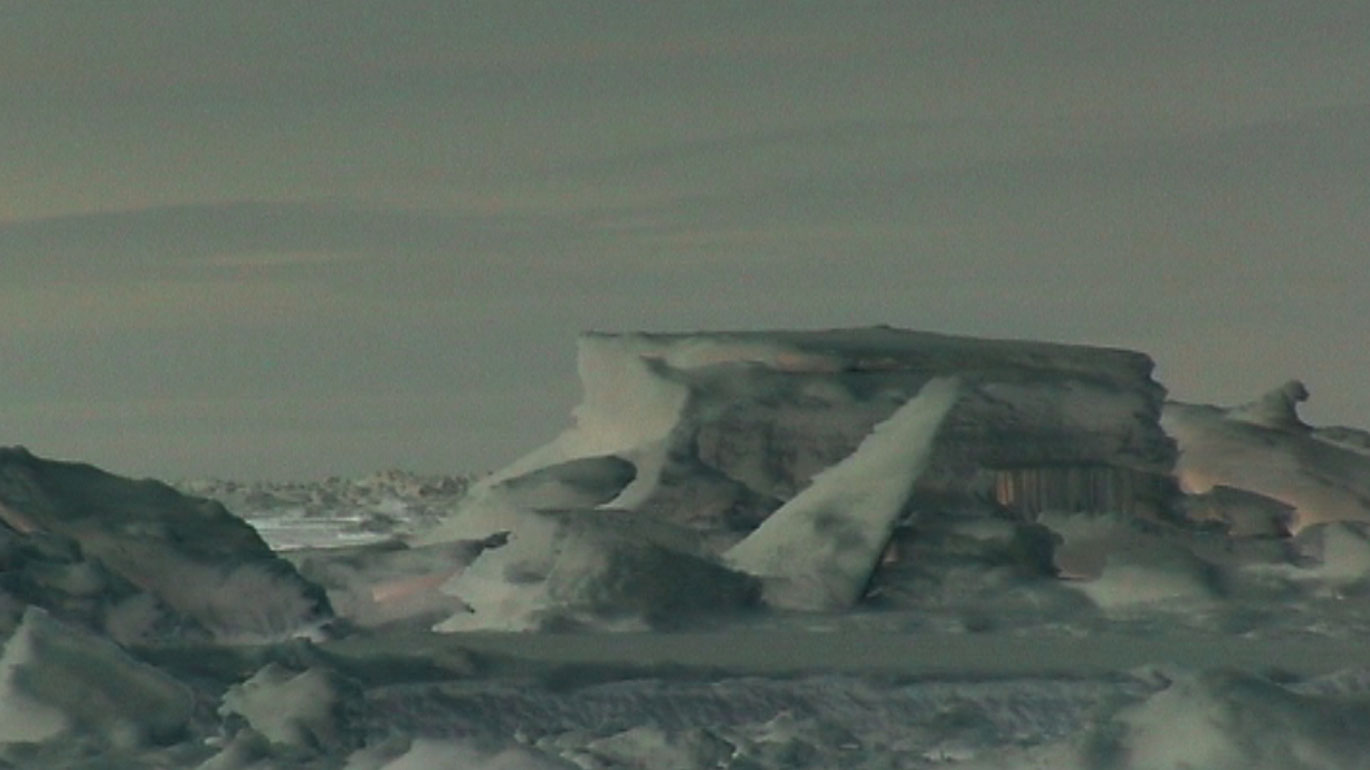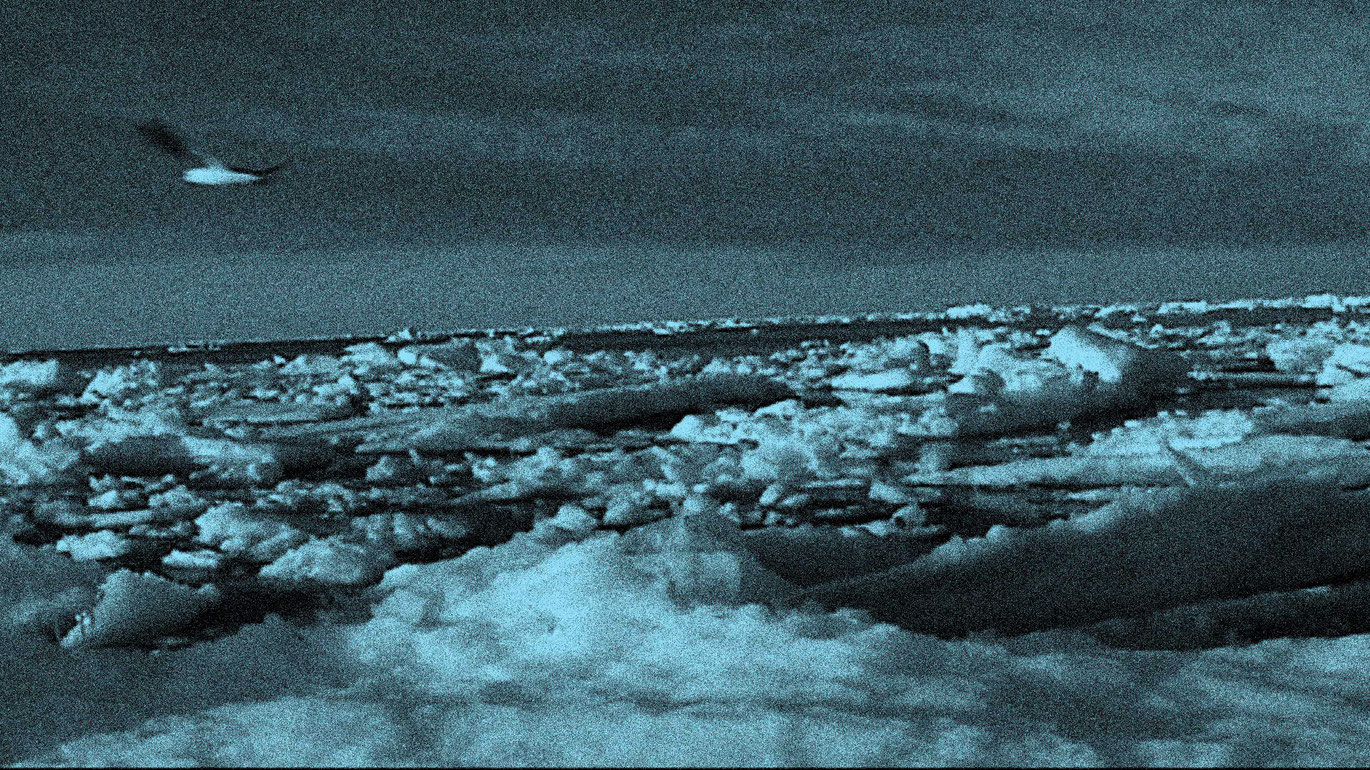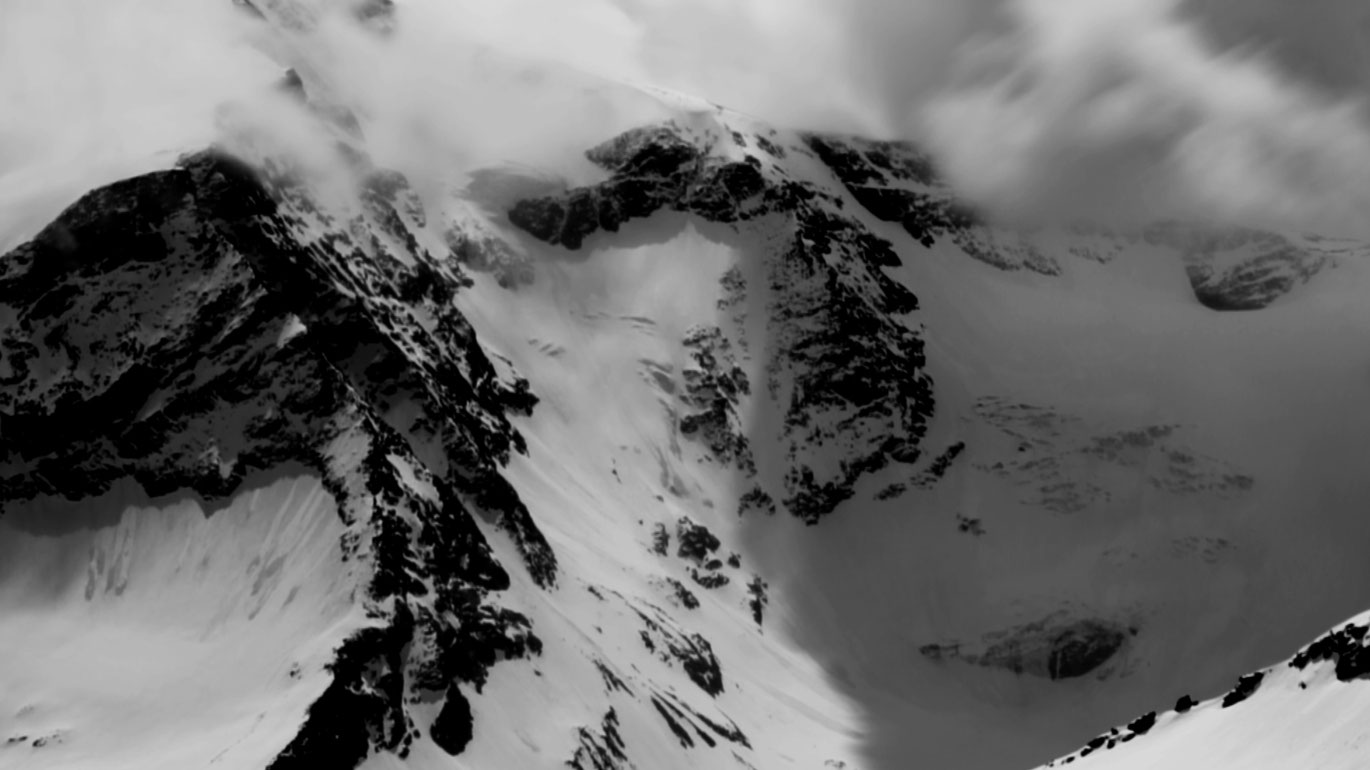Into the Great White Open
Such could be the title of a Western. Or it could be an adventure film. Indeed, Into the Great White Open moves along unstable boundaries and investigates border crossings. Reliable conceptual territories, like abstract or figurative, are not permitted trespass in the land- and soundscapes created by Michaela Grill/Philip Jeck. The ground is unstable, the first shot already misleading: A slow-gliding camera views an Arctic Ocean horizon, drifting ice floes shimmer in the dimming twilight, seagulls flit excitedly across the image – virtually the only reliable companions throughout the course of the entire film. Is it the camera that is moving or drift ice? Is it melting or is the water freezing? And then, are we seeing ice floes or clouds? Positive or negative? William Turner or Caspar David Friedrich?
After the first few minutes, just when we feel we have grasped the expansive horizon of the film and rest in a whiteout of pure contemplation, the strategy shifts. The images accelerate, become more uneasy, flicker, tremble, and strike back, offering a vision of artifacts – is it a snow storm or a sea of pixels? And wasn’t that an alpine mountain formation seen briefly gleaming? The longest shot of the film follows shortly thereafter, in the nick of time: A seagull escapes from a glacier in free fall, safely delivering us to the melting territory of the Pole. The ground is precarious.
Michaela Grill transmits images from a foreign planet, a tire track in the snow becomes a treacherous scandal and passing birds are man’s best friends. In this audio-visual ambience a new habitat is discovered ¬– something between J.G. Ballard’s wastelands and H.P. Lovecraft’s Mountains of Madness: toward delirium and back again. The duel between abstraction and objectivity, between here and there, solid and liquid does not take place.
(Michael Palm)
Translation: Eve Heller
Into the Great White Open is a trip through the ice and snow of the Canadian Arctic. I have long been interested in depictions of supposedly empty landscapes and in this respect the Arctic in its blazing whiteness presents a special challenge. The haziness of what is represented does not generate a perceptual lack but rather an excess of perceptual possibilities.
(Michaela Grill)
Into the Great White Open
2015
Austria, Canada
16 min



